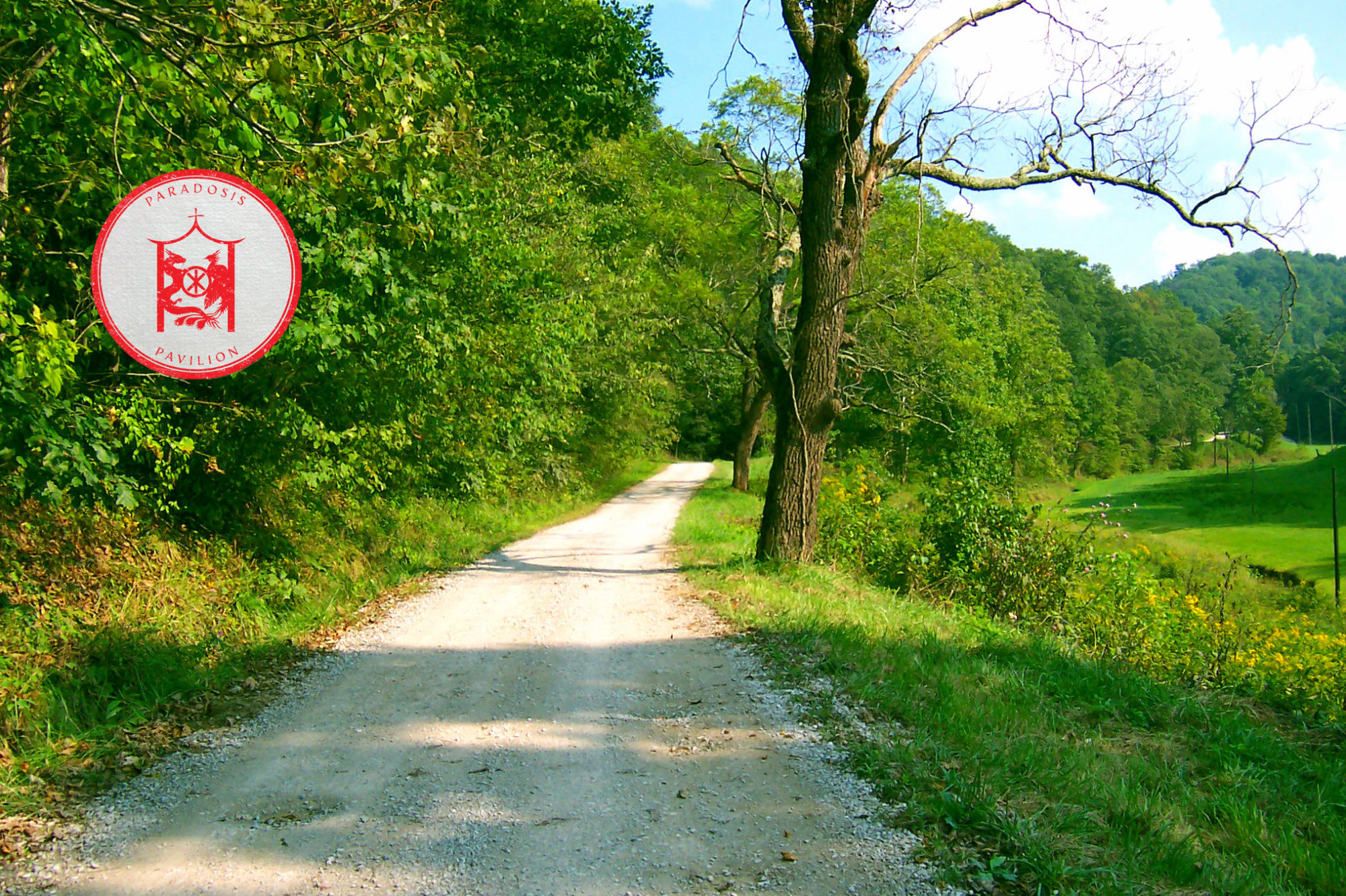
After Adam and Eve fell into the experience of death, God exiled them from Paradise so that they would not take and eat from the Tree of Life. Why did God make them leave the Garden? The Creator did not want human beings, the pentacle of His creation, whom He loved, to live forever as mortals in a perpetual condition of disease, afflicted by sin and death. In order to save us, God set in motion His plan to heal us from death and reopen the Gates of Paradise so we could live forever as immortals in the eternal heavenly Kingdom.
To accomplish our salvation from death, the God-Man Jesus Christ took the Cross upon which He was crucified and turned it into the Tree of Life. Hanging upon the Tree, His Body and Blood became the Fruit of the Tree, the Divine Medicine of Immortality. Having established His Church as the Garden of Paradise on Earth, Christ planted the Tree of His Cross in the midst of the Church. Now, through the ministry of the Church, God calls every human being back to the Garden of Paradise through the waters of Holy Baptism so that everyone may take and eat the Fruit of the Tree of Life and live forever with Him.
The Mystery of Holy Communion is also called the Holy Eucharist, which means thanksgiving. The Eucharist lies at the center of our primary worship service, the Divine Liturgy. Prior to the Divine Liturgy, we take elements of the creation which God has given us – wheat, water, and grapes – and use our human energy to make something – bread and wine – to be offered to God with thankful hearts in the Liturgy. In return for our simple gift of love and thanks to God, He lovingly gives us the Holy Gift of Himself. This is an exchange of love. We give God created gifts of bread and wine, which symbolize that we are offering God our whole lives, and God gives us in return greater Gifts from heaven. Every time we enter into this heavenly worship of the Divine Liturgy, we experience a miracle. We not only see Jesus Christ and touch Him, but we receive Him into ourselves as Medicine. By partaking in the Holy Body and Precious Blood of Jesus Christ, the Son of God, we experience the Uncreated Energy of the Holy Trinity. As I have explained, the Uncreated Energy is the Living Presence of the God Himself, what we also call the Divine Grace. Through Holy Communion, we are each united in communion with Christ Himself and are united in communion with each other as the Church, which is mystically the pure Body of Christ.
In short, Jesus Christ is both our Great Physician and our Divine Medicine. His Church is the Hospital where the Divine Medicine is administered and the Garden of Paradise in which the Fruit of the Tree of Life is consumed. Since you have become a natural-born citizen of the heaven, you need to nourish your soul and body with the healing, strengthening, and transfiguring Divine Food.
In preparation for the reception of Holy Communion, completely abstain from all food and drink from midnight until the time that you receive Holy Communion the next morning. This is called the Eucharistic fast. If the Divine Liturgy is celebrated in the evening, you may begin the fast after your noon-hour meal. If you are sick, you do not need to fast since your body is already humbled. If you need to take medicine, take your medicine and only as much of water or food as necessary. If you are pregnant or nursing, you do not need to fast since your body is humbled and you require nourishment for the sake of your child. In addition to keeping the Eucharistic fast, pray the Pre-Communion prayers in order to prepare your soul to receive the Divine Gifts so that the Medicine may effectively heal your soul. These are not Pharisaic requirements, but helpful therapeutic practices.
When you approach the Chalice, keep your arms crossed over your chest. (Remember the Seraphim, who cover themselves with their wings in humility before God.). Allow the Priest’s assistants to place the communion cloth under your chin. Open your mouth to receive the Divine Gifts on a spoon from hand of the Priest. When the spoon is in your mouth, close your mouth and lips so that nothing remains on the spoon when the Priest withdraws it. If necessary, you may then very carefully wipe your lips with the communion cloth before you step away.
If you are partaking in one of the Western Rite Divine Liturgies of the Orthodox Church (that is, the Liturgy of St. Gregory the Dialogist or the Liturgy of St. Tikhon), the Priest will place the Holy Gifts on your tongue with His hand instead of by spoon. In such a case, observe the same reverence and care.
Read: Genesis 3.1-7; 4.1-5; 8.18-21; 9.1-4; 14:18-20; 22.1-19; 28.10-22; Exodus 12; 13.3-10; 20.22-26; 24.7-8; Leviticus 16-17; John 6; Luke 22:7-38; 24.30-32; John 19.17-37; Hebrews 5-10; Colossians 1.1-23; 1 John 1.5-7; 1 Corinthians 11.23-32; Revelation 19.6-9; 22.1-3
Text copyright © 2018 by Fr. Symeon D. S. Kees
